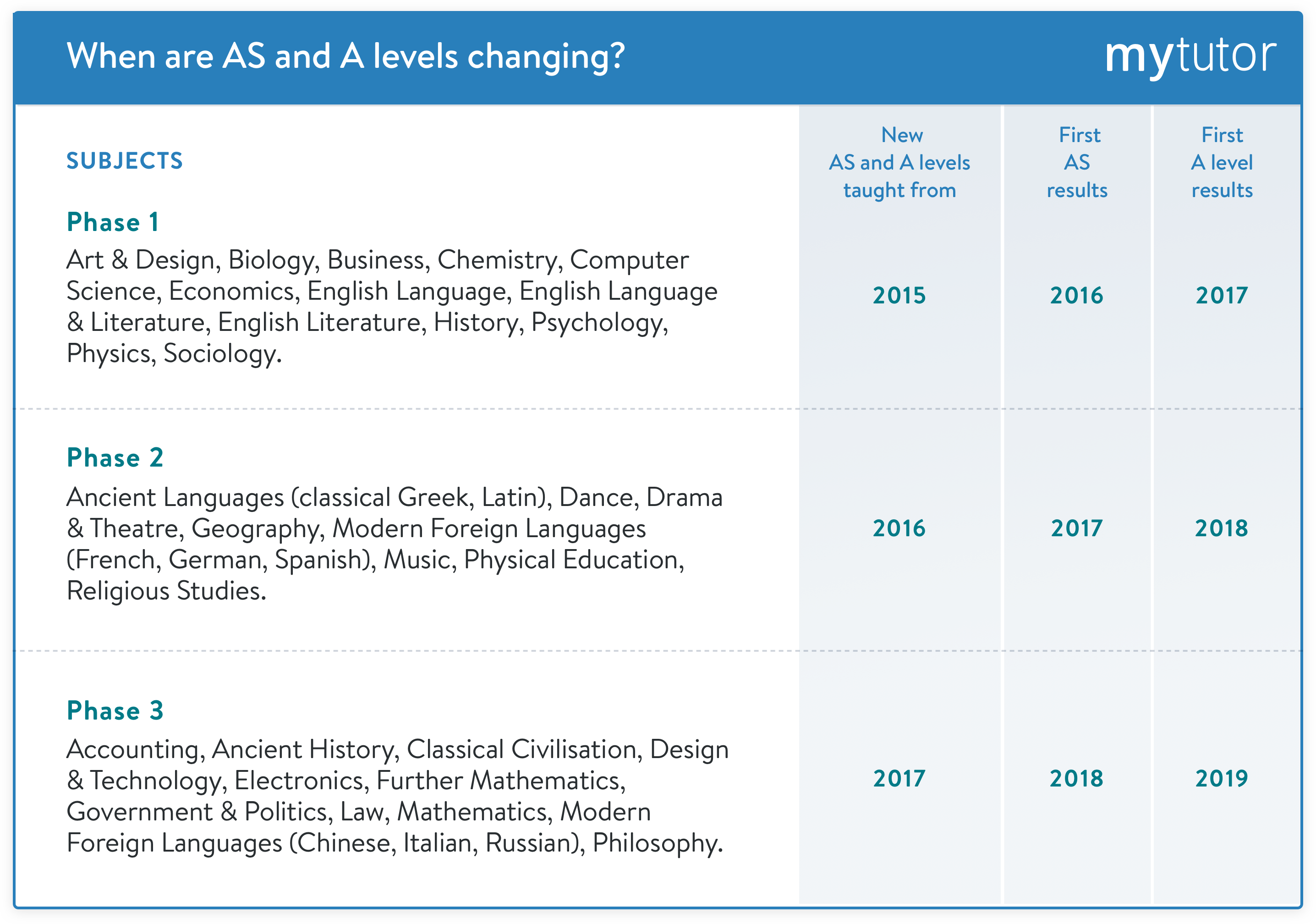If you’re at school, or your child is at school, you’ll no doubt know that AS and A levels are being reformed in England. But not all schools have explained how AS and A levels are being changed, when the changes are being implemented, and how students will be impacted. Luckily, we’ve broken down the changes for you, to help you stay on top of things.
What are the new AS and A levels like?
-
- The content of the new A levels has been reviewed and updated.
-
- Assessment is mainly by exam, with other types of assessment used only where they are needed to test essential skills. For example, there is still coursework in Art & Design, English Language, English Literature, History and Geography. Practical skills are still assessed in Biology, Chemistry and Physics.
-
- AS and A level courses are no longer divided into modules and there are no exams in January. AS levels are optional – if you sit AS levels, you will typically do so after 1 year’s study. A levels take place after 2 year’s study. Your school will decide whether or not you sit AS levels, not you!
- AS and A levels are decoupled – i.e., AS results no longer count towards an A level.
When are the changes being implemented?
Confusingly, not all subjects are changing at the same time. The changes are being implemented in three phases: phase 1 took place in 2015 (with first A level assessment in 2017), phase 2 in 2016 (with first A level assessment in 2018), and phase 3 is due in September 2017 (with first A level assessment in 2019). If you’re sitting AS or A levels this summer, you’re likely to be taking a mixture of old and new qualifications. The first new AS levels were assessed in 2016, and the first new A levels are being assessed this year (2017).


Should I be worried?
No! Everyone is in the same boat, so nobody will be disadvantaged. Universities know that some students will be taking AS levels and some won’t, and will do their best to ensure that all applications are treated equally. Universities will consider each application on its individual merits.
If you think you’d benefit from some help understanding the new syllabuses, our tutors have first hand experience of teaching this content and can answer your questions in a Free Video Meeting.


Anna T. studied French at the University of Oxford, and now she works for MyTutor. She has completed over 200 hours of private tuition. Her interests include yoga, edtech and French culture.





